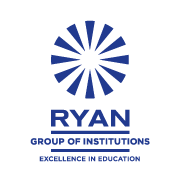Understanding Psychometric Tests
Psychometric assessments are scientifically designed tools, crafted by psychologists and career experts, that aim to effectively gauge an individual’s aptitudes, personality, and interests. These systematic tests delve into a student’s inherent strengths and preferences, providing comprehensive insights that can subsequently guide them towards suitable careers. The assessment types typically include:
- Aptitude Tests: These assessments measure cognitive capabilities such as numerical reasoning or spatial perception. They are instrumental in identifying innate talents and proficiencies that could provide an edge in certain career fields.
- Personality Tests: These evaluations quantify individual personality traits like emotional stability and openness. By correlating these traits with various job roles, students can discover work environments where they are most likely to flourish.
- Career Assessments: These tests amalgamate insights from both the aptitude and personality tests, thereby offering a holistic understanding of where a student’s abilities and traits can be best applied.
- Interest Inventories: These assessments help discern a student’s preferences and interests, steering them towards careers they would find engaging and fulfilling.
The Importance of Reliability in Psychometric Assessments
In order to ensure their dependability, psychometric assessments undergo strict standardization processes. Techniques such as test-retest reliability are employed to confirm that an individual’s responses maintain consistency over time. This reliability is further solidified by ensuring the internal congruity of the questions posed during the assessment.
However, it is important to acknowledge that despite these rigorous procedures, external factors such as stress and fatigue can influence the test results. Consequently, the interpretation of psychometric career assessments requires a nuanced and balanced approach, considering both the test results and an individual’s personal circumstances.
The Art of Interpretation: The Role of Career Counsellors
Even with the objective insights furnished by psychometric assessments, the task of choosing a career path can seem daunting. This is where the invaluable role of career counselling comes into play.
Career counsellors serve as much more than interpreters of test results. They function as supportive guides, assisting students in integrating the insights garnered from the assessments into a broader comprehension of their career options. They factor in a student’s unique background and aspirations and connect these to real-world contexts, encompassing industry trends, cultural norms, and societal expectations.
Moreover, they offer emotional support and practical guidance, equipping students with crucial life skills such as decision-making and goal-setting. They aid in understanding psychometric assessments, offering customized advice for future steps based on a comprehensive interpretation of the results.
A Holistic Approach: The Power of Combined Guidance
The process of career selection should not be viewed as a solitary journey. Rather, it should be seen as a partnership between psychometric assessments and career counselling. Both these elements work in tandem to identify key traits, skills, and potential, painting a comprehensive picture of an individual’s professional DNA.
Career counsellors also facilitate students in the ongoing process of self-evaluation, guiding them towards informed career decisions that align with their current interests and values. They assist students in overcoming obstacles and limiting beliefs, and provide insights into networking and mentorship opportunities.
Additionally, career counsellors guide students towards appropriate educational and training opportunities required for various career paths. They aid in crafting a strong resume, navigating scholarship applications, selecting suitable coursework, and constructing effective job search strategies.
The Road Ahead
The journey of choosing a career path is indeed a significant one, and tools like psychometric career assessments can prove to be immensely helpful. By offering insights into a student’s aptitudes, personality traits, and interests, these assessments allow students to take confident strides towards their future career.
Nevertheless, it is imperative to remember that these assessments are not absolute answers, but catalysts that initiate a more profound dialogue about career possibilities. Pairing these assessments with professional career counselling equips students with a holistic understanding of their career prospects, enabling them to make well-informed decisions for their future.
By harnessing the combined strengths of psychometric assessments and career counselling, students are guided on a journey towards a rewarding and fulfilling career. Indeed, reaching the destination is crucial, but the journey of self-exploration and personal growth undertaken to arrive there is equally, if not more, significant.




